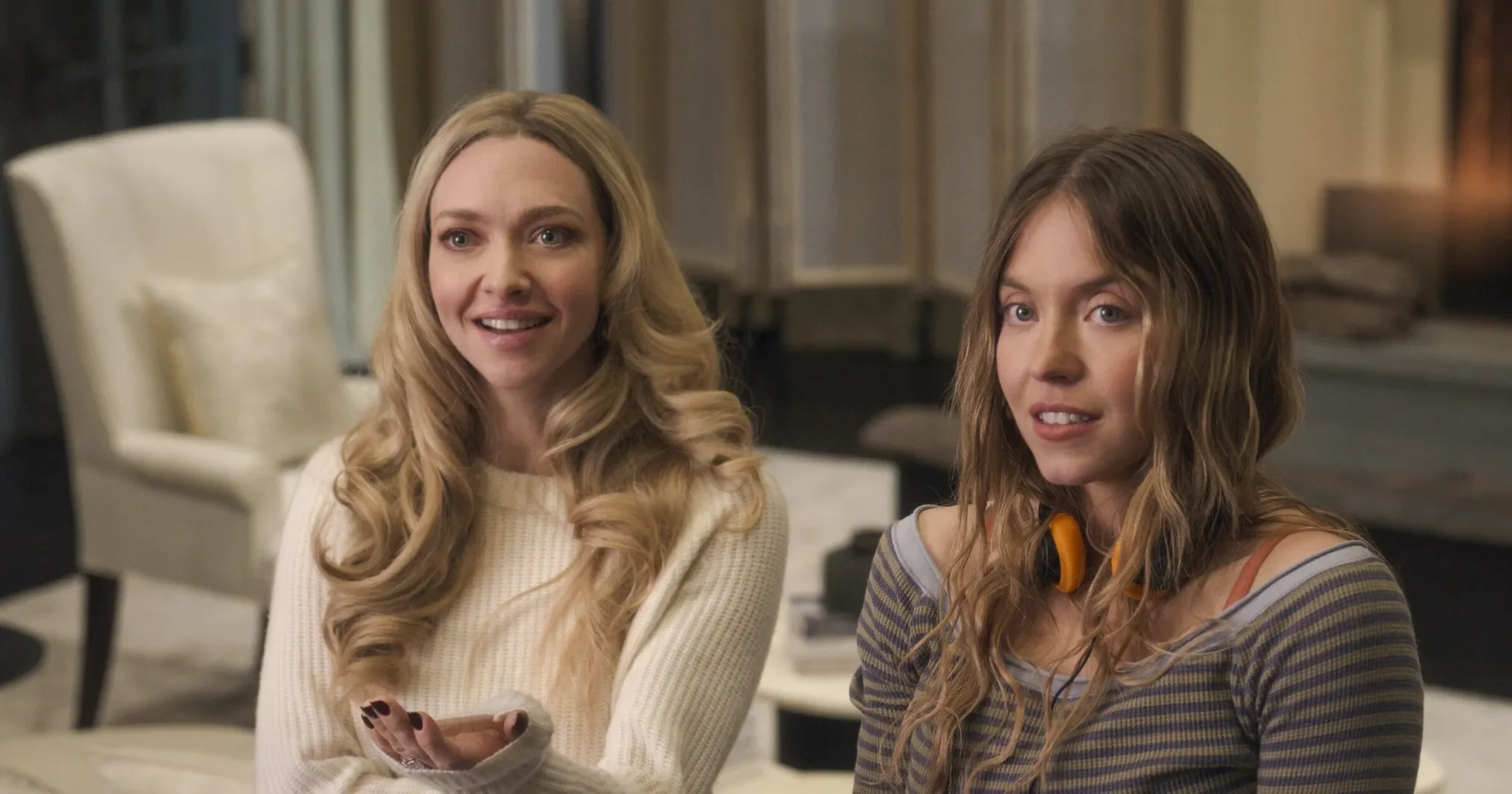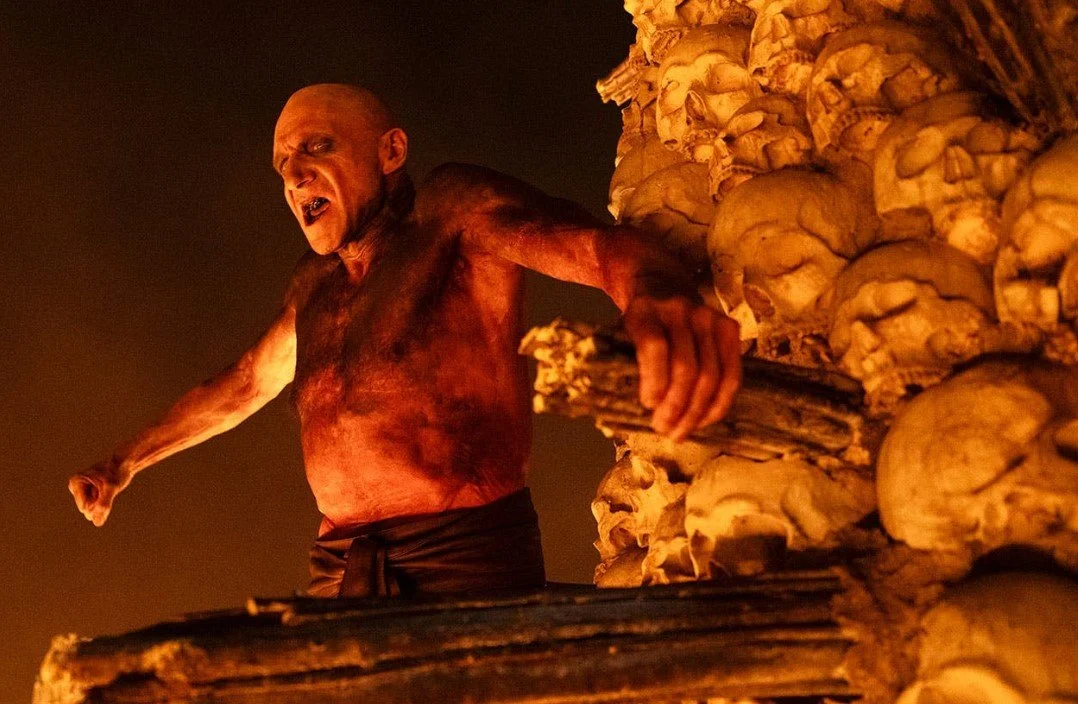‘WandaVision’ REVIEW: A Love Letter to Sitcoms and Bizarre Comic Book Stories
‘WandaVision’ REVIEW: A Love Letter to Sitcoms and Bizarre Comic Book Stories
WandaVision is the most popular show of 2021 so far.
This review contains spoilers for WandaVision.
When WandaVision was announced as the new ribbon cutter to the Marvel Cinematic Universe’s Phase 4, you could almost hear a pin drop in the multiverse. A time-hopping sitcom starring a C-list superhero in Wanda Maximoff along with her supposedly dead robot soulmate? What a bonkers and high concept idea even for a too-big-to-fail studio like Marvel. And yet, here we are, nine weeks later and WandaVision is still the most sought after show worldwide. The limited series is so popular that it even caused Disney’s now valuable streaming service to encounter some technical difficulties due to a huge spike of audiences flocking to watch the season finale. So what’s the big deal? Perhaps the show’s success can be correlated to two things: its creativity and heart.
Picture Marvel’s situation here, they just finished tying the knot on their 11 year franchise with an unimaginably gigantic film like Endgame and they also had to deal with the whole fiasco with Sony about Spider-Man rights. Then, the pandemic happens and their Phase 4 plans get screwed over as Black Widow keeps getting delayed. So after a drought lasting a whole year without any normal Marvel content, they decide to kick off the new phase with...two episodes set in the ‘50s and ‘60s? Oh, and in black and white by the way.
Marvel’s Creative Gambit
Predictably, a lot of the common fanbases of the MCU were confused; what in the absolute crap is happening? On the one hand, a majority of these audiences are children to teenagers, an age group that is not exceptionally known for their attention span when it comes to the media. On the other hand, these are groups of people that have also been desensitized to the idea that a show is typically going to release the episodes all at once due to the rise of the now prominent binge-watch model of Netflix. So really, Marvel is not doing themselves any favors by: a.) not giving these people all the answers immediately, and b.) doing something...unpredictable for once.
Notice how these were complaints by people at the start of the show, yet these complaints immediately died down as the show progressed. An argument can be made that those complaints are exactly what makes the show so fantastic. Marvel is very limiting as a studio, but in the moments that they allow creators to do something even remotely creative, refreshing, and out of the box, it can make those properties really stand out—WandaVision is a prime example of that. Just look at the results of the properties in which they’ve allowed creators to gain some semblance of creative freedom in the past. Thor: Ragnarok doesn’t hide Taika Waititi’s style of conversational humor; in fact, the film even wears it as a badge of honor. More notably, that style actually fit more towards Thor’s sensibilities as a character and did what the previous two films couldn’t even scratch, giving Thor a personality. Furthermore, Black Panther allowed Ryan Coogler to go all out in depicting the world of Wakanda, mixing ideas of Afrofuturism along with contemporary racial politics that seeped into the heart of its core narrative. It also did what previous Marvel films failed to do which are to get nominated for Best Picture, actually win Oscars, and the biggest achievement of all, get taken seriously by old white Academy voters. Kidding aside, the benefits that Marvel accrue when they allow even just a slight affinity to creative freedom is undeniable (which is why Chloé Zhao directing The Eternals this year is such an exciting prospect).
WandaVision cost $225 million to make.
This leads us to the bonkers creative exercise (or ‘flex’ if you would like) that is WandaVision. With $25 million in the pocket of its creators for each episode, it felt like cheating from the beginning. WandaVision looked so stunning as soon as those opening black and white text started floating, the production value is symmetric to that of a film. Elizabeth Olsen and Paul Bettany reprise their roles, finally being given the spotlight. In the past, both of their characters were introduced into the melting pot of a mess that was Avengers: Age of Ultron, and we saw their relationship grow as side characters all throughout the big team-up films. This made their story and relationship, prior to the show, seem vague and inconsequential. We only ever get hints of their off-screen romance since we already see it fully formed by the time Infinity War arrives. We were robbed of any further development since, well, Vision dies (twice). WandaVision arrives to fill that void and highlights how incredibly underutilized Olsen and Bettany were as actors in the MCU.
A Colorful Cast of Characters
Paul Bettany, free of no longer having to act with egregious makeup on all the time, finally gets to show off his surprisingly comedic chops. Vision never stood out as a real hero in the MCU, more of just an incredibly overpowered robot that dug a hole for Marvel because they always have to find ways to organically write him off conflicts. But, in this show, he’s presented more in a heroic light. He’s empathetic with Wanda, but at the same time, he is wary of the citizens of Westview and seeks out help for them. He doesn’t remember that he’s an Avenger, yet it still seems hardwired to his programming to be of service to others, to still be capable of bifurcating the right from wrong. He’s definitely much more relatable here and Bettany’s performance was so good that it was disappointing he was so underutilized as a red popsicle for most of his appearances prior to this.
Elizabeth Olsen on the other hand, is just an absolute revelation. This show hinges on her grief and pain, and if that doesn’t sell then all the other pieces fall apart—oh boy, does it sell. She eats up all the scenes she’s in, she accentuates the right emotions at the right moments and never misses a beat. She has little nuances in her performance such as her looking away as tears run down profusely after going through an unseen memory of her and Vision. It’s also so effortless the way her mouth trembles as she revisits the corpse of Vision being disassembled while she struggles to find the words to say. Most of these moments occur in the 8th episode entitled “Previously On” and it remains to be my favorite episode of the show mainly due to her performance. She portrays Wanda’s increasing mental instability with a level of honesty that is often unseen in most mainstream films. There is care and attention given to exploring the grief that her character feels. She’s clearly taking a page from the emotional House of M storyline from the comics which dealt with Wanda’s tantalizing mental breakdown. Elizabeth’s acting chops in this show pile up to be what I believe is the unquestionable standout performance in the MCU library so far.
Both of these actors and the characters they represent combine to form the heart of the show. Their success highlights the reason why Man of Steel or the original Justice League film didn’t work, those films aren’t grounded in heroes that we would really care about. Man of Steel literally had Superman commit multiple unintentional war crimes in the final battle, and quite predictably, we aren’t sympathetic to him even a little bit. Meanwhile, Wanda has a whole town under her control against the citizens’ own free will in order to achieve a sort of BARF-like therapy for her own self-interest, yet we still care about her and even sort of root for her to solve this problem. The reason why audiences are still empathetic with the latter is because Marvel did this basic (yet often forgotten) narrative technique of taking the time to ensure that the love between Wanda and Vision felt genuine enough to generate sympathy from the audience. That’s a tall task to do, way easier said than done. Case in point, there’s been two Ant-Man films already, yet it seems pretty clear that audiences still do not care about Scott Lang; you simply can’t fix bad writing.
The show brings back side characters such as Darcy Lewis, Jimmy Woo, and Monica Rambeau.
Speaking of characters we thought we didn’t care about, bringing back Darcy Lewis, Jimmy Woo, and reintroducing a grown-up Monica Rambeau in the show was a first-rate move from Marvel. Part of what made the MCU so engaging was their ability to bring in these previous side characters from their blockbuster films onto their other properties because why the heck not? We saw this when Lady Sif and Nick Fury made cameos in Agents of S.H.I.E.L.D., but at best those were just fun little cameos. In here, Darcy and Jimmy aren’t cameos, they are pertinent to the plot and have integral roles that last more than just a single episode. Monica, played by Teyonah Parris, was sensational in her role. It was also surprising that her ‘Photon’ superpowers already manifested in the show itself. Her breaking through the hex barrier while recalling her past selves and the words from Captain Marvel is the most visually interesting sequence in the series and was definitely one of my favorite scenes as well. Jimmy Woo is hilarious in the show and fans are even clamoring for him to get his own one. It’s these fun little nods like Jimmy being more attuned to magic tricks because of Scott’s influence makes the connective tissue between the films feel all the more genuine.
A Superb Mystery (with Satisfying Answers?)
Let’s be clear though, WandaVision wouldn’t have worked as a film. This relates to the unique selling point of the show: its weird and engaging episodic mystery. The impact of the reveals and major character moments wouldn’t have been as brilliant if it were just simply released all at once. The mystery lingered on for weeks, and what was surprising was that there were enough red herrings and misdirects in each subsequent episode that kept fans guessing (God knows how many theories were vindicated or disproven throughout the lifespan of this show). The first few episodes in particular were such a refreshing change of pace for Marvel. The show didn’t rush to pull down the curtains on us and instead opted to showcase multiple smoking guns. They allowed 3 weeks worth of speculation to ensure that the mystery would simmer in audiences’ heads before giving us any substantial catharsis—now that is restraint.
Even after episode 4, more and more mysteries arose. Why sitcoms? Why does Vision still seemingly have the mind stone intact? Are Tommy and Billy shreds of Mephisto’s soul? Oh right, and how the hell did Quicksilver from the X-Men Universe get here? Rampant speculation and unrealistic theories aside, the mere fact that we were still left scratching our heads while getting mad as the end credits appear every week is a testament to the episodic model’s success. But, let’s talk about those expectations that grew along with the viewership numbers. Did it live up to those expectations in the finale? Definitely not. Does it matter that it didn’t live up to those expectations? Probably, but we don’t really know yet until we watch Spider-Man: No Way Home, or Doctor Strange: Multiverse of Madness. We’re not certain that they DIDN’T do the multiverse because those questions could possibly be given answers in a later film.
It’s probably not wise to diminish a property based on holes that may be answered in a future film, but if that is the case, then doesn’t that mean the show can’t stand on its own? In order to understand the whole sequence of Monica being blipped back, or Darcy being a well-known scientist, and of course, why this Quicksilver is such a huge deal, you need to have a working knowledge of previous Marvel canon. The show is strengthened by those connections, yet it also gets bogged down by them at the same time. The finale—arguably one of the weaker episodes of the show—is there to just set up future conflicts and another Wanda character arc to be resolved in (hopefully) a theater near you. Come on Marvel, Ralph Bohner?
It quickly brushes up on the Pietro mystery because that will probably get answered some other time, and they sideline White Vision all of a sudden because, again, the fear of digging themselves into the hole of an extremely superpowered robot is just too much of a burden. The Agatha Harkness reveal, while predictable, was still such a joy to watch. However, Kathryn Hahn’s charisma isn’t enough to save her villain falling into the same pitfalls of past Marvel villains. Introduced late into the game, her set-up is rushed and is clearly bound to reappear in future Marvel properties. Judgements are currently on hold regarding her character, which has the potential to be as good as Loki, or as forgettable as...well all the other Marvel villains (except for a few, looking at you Killmonger and Thanos).
Kathryn Hahn plays the villain, Agatha Harkness.
Enough on the show’s weaknesses, let’s get back to its strengths, and man does it have some bangers. There’s a clever retcon to Wanda’s powers that made the show feel so much more alike to a comic book issue more than anything we’ve seen before. The retcon in question is that Wanda apparently has been magically or mutant-inclined all this time and the mind stone only further amplified her power. This opens the door to a whole set of retrospective mutant explanations making it way easier to transition to the X-Men. These kinds of retcons are those that you’d normally see in comic book panels with a new writer arriving to shake things up, but to see it happen in a $200 million dollar property is insane. If Phase 4 continues this tradition of introducing more imaginative changes to the status quo, then Marvel truly has a bright future ahead of them.
Of course, when talking about bangers, it’s unwise not to mention the sitcom homages and the outstanding soundtrack. Seeing those Dick Van Dyke, I Love Lucy, Family Ties, Malcolm in the Middle, and Modern Family tributes were a treat. This show could’ve been just like any other loving tribute to the sitcoms of the past and present, but to see how it came from Marvel incorporating their in-world magic to justify such a creative exercise is nothing short of amazing. We need more of these creative projects instead of supporting the dull and redundant ones that often come from the same studio. Then came the soundtrack, and they did not have to make each intro and song so damn catchy. Helmed by Christophe Beck along with the musical duo of Kristen Anderson-Lopez and Robert Lopez, they did not hold back when it came to scoring the hell out of this show. My personal favorites are the ‘60s and ‘70s intros, and a special mention to the “Agatha All Along” bop from the 7th episode.
Overall, WandaVision is a creative love letter to sitcoms that kicks off a bright future for future Marvel shows. Led by the impassioned performance of Elizabeth Olsen and an incredibly heartfelt version of Paul Bettany’s Vision, Marvel has once again made their low-tier side characters into household names.
WandaVision is now available on Disney+.












